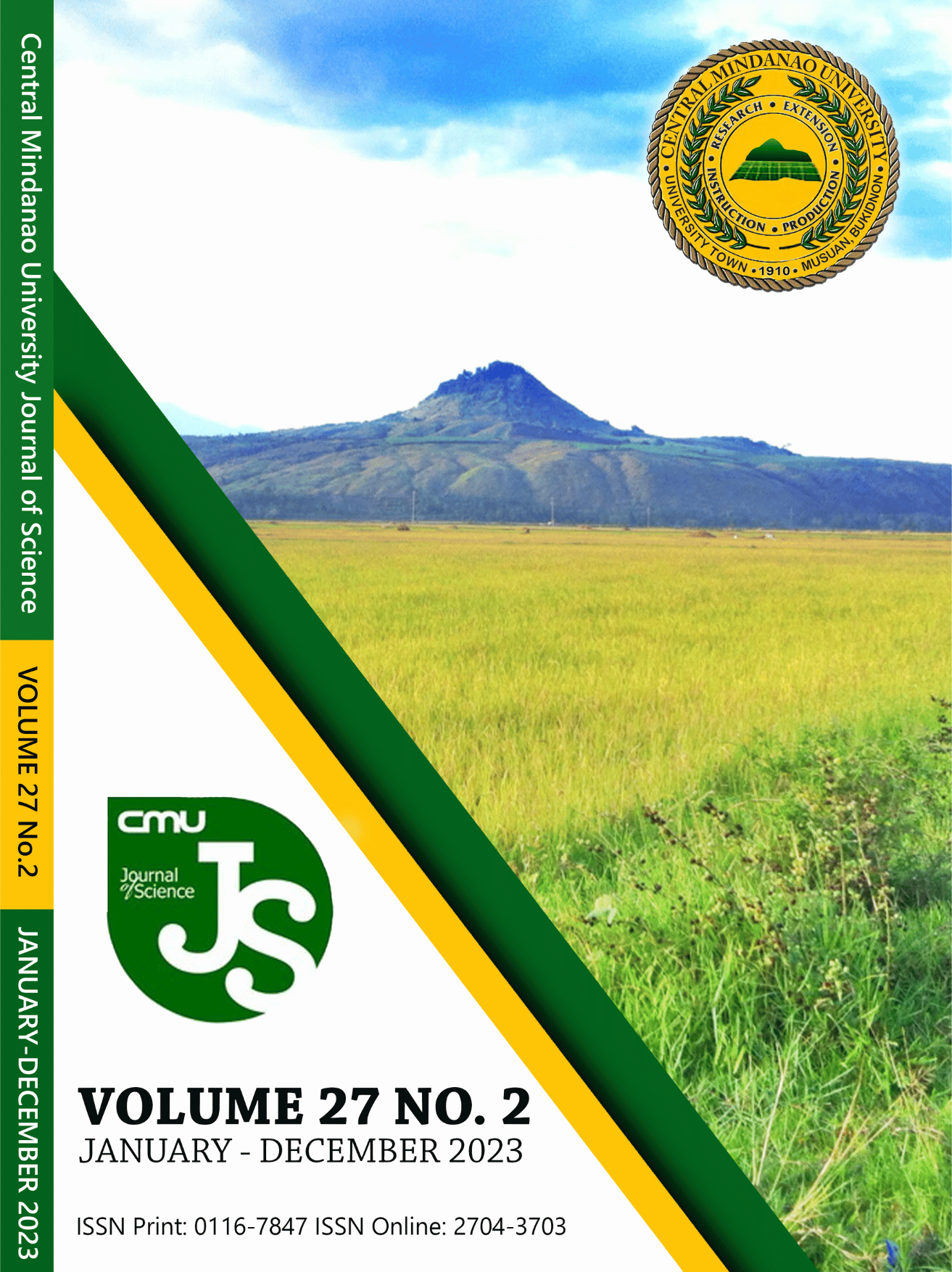Assessment of Diet, Breastfeeding and Sanitation in Brgy. Bukangliwayway, Kibawe, Bukidnon: A Cross-Sectional Study
DOI:
https://doi.org/10.52751/UJBD3217Keywords:
nutrition-supportive interventions, malnutrition, diet diversity, breastfeeding, water, sanitation, and hygiene (WaSH)Abstract
In the Philippines, especially in far-flung areas where poverty is still common, malnutrition remains a significant problem. Factors contributing to malnutrition and their interplay with poverty in impoverished areas of the Philippines are not thoroughly investigated. An assessment of the different nutritional, health, and social factors are needed to address poverty-linked malnutrition in Brgy. Bukang Liwayway and similar contexts. One hundred forty-five (145) households that served as sampling units were randomly selected. Two (2) 24-hour food recalls were conducted to capture the usual dietary intakes and diet diversity. Questionnaires were adapted, pre-tested, and used to assess the breastfeeding knowledge, attitudes, and practices (KAP) and the Water, Sanitation, and Hygiene (WaSH) situation. Multiple nutrients were found to be inadequate in the usual diet of the participants compared with the dietary reference intakes, namely: fat (56.27%), fiber (51.24%), vitamin A (66.90%), iron (44.94%), vitamin C (70.90%), thiamin (25.56%), and riboflavin (56.67%). The mean SD diversity score of the households was 5 ± 1.25, which indicates that the typical diet was not particularly diversified. There were alarming knowledge deficits on crucial aspects of breastfeeding, such as only a few mothers/caregivers knew the meaning (20.69%) and the physical benefits of exclusive breastfeeding to a mother (17.24%). There were also sanitary and hygiene issues needed to be addressed, such as open defecation, poor toilet facilities, a lack of soap, and occasional handwashing. The study showed that there were significant inadequacies in dietary intake, breastfeeding, and sanitation practices that need to be addressed and developed into evidence-based strategies aimed at effectively combating poverty-linked malnutrition in the region.
Downloads













 LinkedIn
LinkedIn